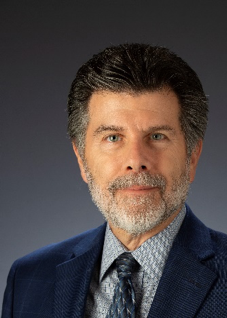June 2020 – Region 9 Reports
REGION 9 REPORTS – JUNE 2020 NEWSLETTER
The Committee on Preparing the Future Civil Engineer
and the Engineer Tomorrow Initiative
by Kenneth H. Rosenfield, P.E., F.ASCE
Vice-Chair, ASCE Region 9 Board of Board of Governors
Region 9 Director-Elect, ASCE Board of Direction
Member, ASCE Committee on Preparing the Future Civil Engineer

There is an awareness among many that the knowledge base civil engineers must now acquire to keep up with the world’s complexity and increasing regulatory and standards growth cannot be accomplished in a four-year baccalaureate degree. While mentored experience and on the job training is a significant contributor to enhancing knowledge, postgraduate education is typically required in order to meet several of the recommended outcomes in the Civil Engineering Body of Knowledge, third edition (CEBOK3). This advanced level of education may be obtained through a master’s degree program or through alternative learning options. In either case, we, as a profession, must recognize that the future of the profession will require more education.
The ASCE Board of Direction (BOD) has approved the following definition of this issue:
The American Society of Civil Engineers (ASCE), as the acknowledged leader of the civil engineering profession, has a responsibility to establish and advance standards to fulfill its mission to protect the public health, safety, and welfare. This responsibility includes the establishment of a body of knowledge (BOK) to describe the minimum knowledge, skills, and attitudes necessary for the future professional practice of civil engineering. ASCE has determined there is a gap between the CEBOK and the current educational and experiential requirements for professional licensure in civil engineering. Additional education and relevant experience is required for the future civil engineer. Otherwise, civil engineering is at risk of losing relevance and its place as a learned profession.
To address the issues identified in this statement, the BOD designated a new committee, the “Committee on Preparing the Future Civil Engineer” (CPFCE). Encompassing the former Raise the Bar committee and its associated initiative, the new charge statement is the Committee “shall advance the Society’s educational qualifications and professional standards for the practice of civil engineering.” This Committee’s function is fully aligned with ASCE Goal No. 4 which states, “ASCE advances the educational and professional standards for civil engineers.” The BOD has refreshed the efforts on the importance of all civil engineers striving to meet the outcomes of the CEBOK3
(see https://www.asce.org/Civil_Engineering_Body_of_Knowledge/) and to identify new pathways for future civil engineers to be recognized for the attainment of those outcomes. Among the specific tasks assigned to the CPFCE were updating Policy Statement 465 (see https://www.asce.org/issues-and-advocacy/public-policy/policy-statement-465—the-civil-engineering-body-of-knowledge-and-the-practice-of-civil-engineering/), developing a new brand and creating a communications plan to inform the membership of this new direction. It is an exciting time of new energy being invested into this important effort, recently branded as “Engineer Tomorrow.”
The Engineer Tomorrow initiative has an emphasis on early outreach to all student and younger members and, as well, to inform all membership levels. CPFCE members are available to speak with your group and to share the goals and benefits of the Engineer Tomorrow initiative.
Informed by the services of a marketing consultant, the CPFCE communications team finalized a formal communications plan in late 2019 to build awareness around the evolving initiative.
Within this plan, The CPFCE has identified the following objectives as essential to fulfilling its purpose:
- Increase awareness of the need for post‐graduate education and mentored experience for CEs to fulfill the necessary body of knowledge
- Increase the percentage of CEs enrolling in post‐graduate educational programs
- Underscore the positive impact of higher educational standards on the profession as a whole
- Empower individuals to take responsibility for the future of the CE profession
- Highlight the opportunities and successes of ASCE members with advanced education
- Prompt members with advanced degrees to mentor and encourage others to gain additional skills, knowledge, and education
A task committee of CPFCE has also completed a robust evaluation of if and how professional certification could be used to acknowledge attainment of the CEBOK3. In 2019, the task committee presented an interim report to the BOD which included research on certification processes and programs offered in other fields and how aspects of these systems may be applied to credentialing within the civil engineering profession. The committee also reviewed the available certifications relevant to civil engineering practice, including those offered by ASCE via Civil Engineering Certification, Inc. (CEC) and by other organizations. Data gathered confirmed that no single existing certification is universally recognized as the qualifier of the appropriate knowledge, skills, and attitudes for the practice of civil engineering, including its specialty areas, at the professional level, and meeting the outcomes of the CEBOK3. The task committee has concluded that this may present an opportunity for ASCE to develop such a system, informed by the success primarily evidenced in the medical profession’s model. More recently, the task committee worked with a market research consultant to gather data from various stakeholders within the engineering industry related to the desirability, feasibility, and viability of a certification program. The results of this research are currently being evaluated and will be presented to the BOD before any decision is made on creating a certification program.
For more information on the Engineer Tomorrow initiative and to schedule a presentation to your group, please contact ASCE’s Manager of Professional Advancement, Jennifer Hofmann at JHofmann@asce.org, or you may contact me, Kenneth Rosenfield, Region 9 Director-Elect, at krosenfield@lagunahillsca.gov.
